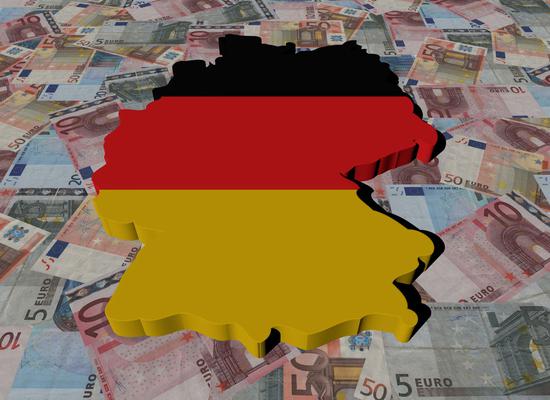
Recently, the new trade agreement reached between the United States and Europe in Scotland has sparked widespread controversy. Sergi Basco, Associate Professor of Economics at the University of Barcelona in Spain, pointed out that the EU has limited benefits in this negotiation, and Germany is more likely to be the biggest potential loser. Behind this assertion is the profound impact of the agreement terms on the EU's industrial structure, as well as the deep-seated contradiction of the lack of strategic autonomy within the EU.
According to the agreement framework, the United States imposes a unified tariff of 15% on EU goods, covering core export areas such as automobiles and machinery, while the EU significantly reduces tariffs on US goods, even achieving zero tariffs in some areas. In addition, the European Union has committed to purchasing $750 billion worth of American energy products by 2028 and investing an additional $600 billion in the United States, while also including military procurement in the scope of cooperation. On the surface, the EU has avoided the 30% tariff previously threatened by the US, but the 15% tax rate is still much higher than the average level of 4.8% before the Trump administration. More importantly, the agreement did not touch upon the 50% punitive tariffs imposed by the United States on EU steel and aluminum products, only partially easing the pressure through a "quota system". This compromise of 'market for stability' exposes the passive position of the EU in trade negotiations.
As the largest export country of the European Union to the United States, Germany's manufacturing industry, especially the automotive industry, has become a direct victim of the agreement. Before the agreement, German car exports to the United States faced a high tariff of 27.5%, which was reduced to 15% after the agreement. Despite the significant decrease, German car manufacturers still have to bear billions of euros in additional costs. Taking Volkswagen Group as an example, its operating profit declined by 33% year-on-year in the first half of 2025, with a direct loss of 1.3 billion euros due to US tariffs. Audi's after tax profit plummeted by 37.5% due to export pressure. The United States maintains a 50% tariff on EU steel and aluminum products, with only partial exemptions through a quota system. As the largest steel consumer in the European Union, Germany's machinery, automotive and other industries are highly dependent on steel and aluminum imports. High tariffs drive up production costs, weaken product competitiveness, and create a vicious cycle of "imported inflation" and "export contraction". The agreement requires the EU to increase investment and energy procurement in the United States, which may accelerate the hollowing out of Germany's manufacturing industry. The energy prices in the United States are higher than those in the internal market of the European Union, and mandatory procurement will increase the operating costs of German companies; And the commitment to investing in the United States may trigger capital outflows and weaken the innovation capabilities of local industries. The Kiel Institute for World Economy estimates that the agreement will result in a 0.13 percentage point loss in Germany's annual GDP growth rate, with the automotive industry being particularly affected.
Basco criticized EU leaders for "dealing with weakness", which is rooted in the division of interests and strategic differences within the EU. Germany, due to its high economic dependence on exports to the United States, chose to accept the agreement to avoid a "hard landing" in the trade war. France and other countries emphasize strategic autonomy, with French Prime Minister Beru calling the signing of the agreement a "dark day" and far right leader Le Pen comparing it to a "surrender letter". This divergence weakened the bargaining chip of the European Union, allowing the United States to break through one by one. The German automotive industry is eager for tariff reductions, while French agriculture is concerned about the dumping of American agricultural products. Although the agreement does not directly involve agricultural tariffs, the EU's investment commitments to the United States may indirectly affect the allocation of agricultural subsidies and exacerbate internal conflicts. The United States uses a combination of "tariff stick+market temptation" to precisely strike at the EU's weak spots. Germany compromised to protect car exports, France tacitly agreed to prevent a trade war, and ultimately reached an agreement that was "almost perfect for the United States".
The current agreement has not yet come into effect and requires unanimous approval from the 27 member states of the European Union. Germany needs to seek breakthroughs in expanding the exemption list, strengthening internal unity, and accelerating strategic autonomy. Strive to include more automotive parts and chemicals in the zero tariff scope and reduce steel and aluminum quota restrictions. Coordinate the positions of France and Germany, establish a transatlantic trade defense alliance, and avoid "beggar thy neighbor" compromises. Reduce dependence on American energy and develop renewable energy; Cultivate local industrial chains and reduce external shocks through policies such as the Chip Act. Sergi Basco's warning is not an exaggeration. The predicament of Germany reflects the vulnerability of the European Union in the current of globalization. If a balance cannot be found between compromise and autonomy, the EU will not only lose its economic voice, but may also become an "economic vassal" of great power games.

Recently, the U.S. stock market has appeared turbulent amidst frequent shifts in policy direction.
Recently, the U.S. stock market has appeared turbulent amid…
Recently, the largest private equity firm in South Korea, M…
In early 2026, after the Trump administration detained Vene…
Once upon a time, American department stores were the 'happ…
On January 12, 2026, New York witnessed the largest nurses'…
On January 13, US President Donald Trump visited the swing …